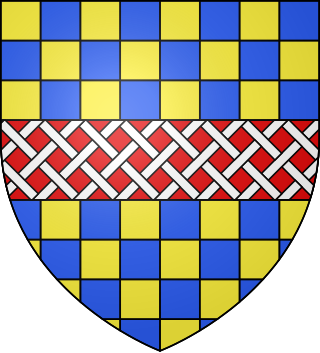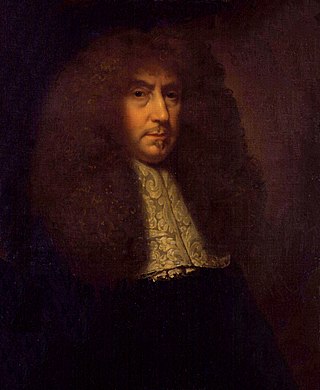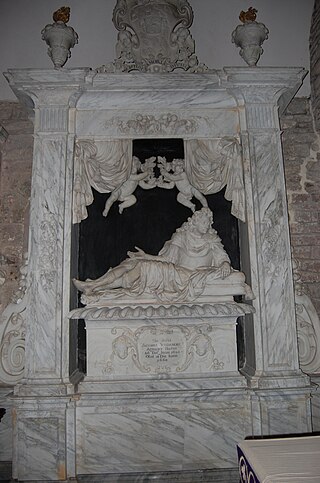Related Research Articles

William Cheyne, 2nd Viscount Newhaven was an English Tory politician and peer who sat in the House of Commons of England from 1681 until 1707 when as a viscount in the Peerage of Scotland he was required to sit in the House of Lords.

Sir Robert Long, 1st Baronet of Westminster was an English courtier and administrator who sat in the House of Commons at various times between 1626 and 1673.

James Scudamore was an English politician who sat in the House of Commons at various times between 1642 and 1668.
Sir Robert Marsham, 4th Baronet was an English politician who sat in the House of Commons from 1698 to 1702.
Caleb Banks was an English politician who sat in the House of Commons between 1685 and 1696.

William Campion was an English politician who sat in the House of Commons between 1689 and 1702.
Sir Adam Browne, 2nd Baronet, DL, JP was an English politician who sat in the House of Commons in two periods between 1661 and 1689. He fought in the Royalist army in the English Civil War.
William Chadwell was an English lawyer and politician who sat in the House of Commons between 1640 and 1644. He supported the Royalist cause in the English Civil War.
John Bulkeley was an English politician who sat in the House of Commons at various times between 1640 and 1662.
Gervase Holles was an English lawyer, antiquarian and politician who sat in the House of Commons from 1640 to 1642. He fought in the Royalist army in the English Civil War.
John Baber (1593–1644) was an English lawyer and politician who sat in the House of Commons between 1628 and 1640.
Henry Garton (1600–1641) was an English politician who sat in the House of Commons from 1640 to 1641.
Sir Edward Bayntun was an English politician who sat in the House of Commons variously between 1640 and 1679.

Sir John Carew, 3rd Baronet of Antony, Cornwall, was an English politician who sat in the House of Commons variously between 1660 and 1692.
Sir Peter Courtney was an English politician who sat in the House of Commons in 1640 and in 1660. He fought for the Royalist cause in the English Civil War.
John Griffith was a Welsh politician who sat in the House of Commons at various times between 1621 and 1642.
George Montagu was an English politician who sat in the House of Commons at various times between 1640 and 1679.
Edward Herle was an English politician who sat in the House of Commons at various times between 1640 and 1689. He fought in the Parliamentary army in the English Civil War.
Sir John Gell, 2nd Baronet was an English politician who sat in the House of Commons at various times between 1654 and 1689.
Sir Francis Carew (1602–1649) was an English politician who sat in the House of Commons between 1624 and 1626.
References
- ↑ 'Alumni Oxonienses, 1500-1714: Eade-Eyton', Alumni Oxonienses 1500-1714: Abannan-Kyte (1891), pp. 440-479. Date accessed: 16 May 2011
- ↑ Willis, Browne (1750). Notitia Parliamentaria, Part II: A Series or Lists of the Representatives in the several Parliaments held from the Reformation 1541, to the Restoration 1660 ... London. pp. 229–239.
- ↑ Leigh Rayment's Historical List of MPs – Constituencies beginning with "H" (part 2)
- ↑ Leigh Rayment's Historical List of MPs – Constituencies beginning with "S" (part 6)